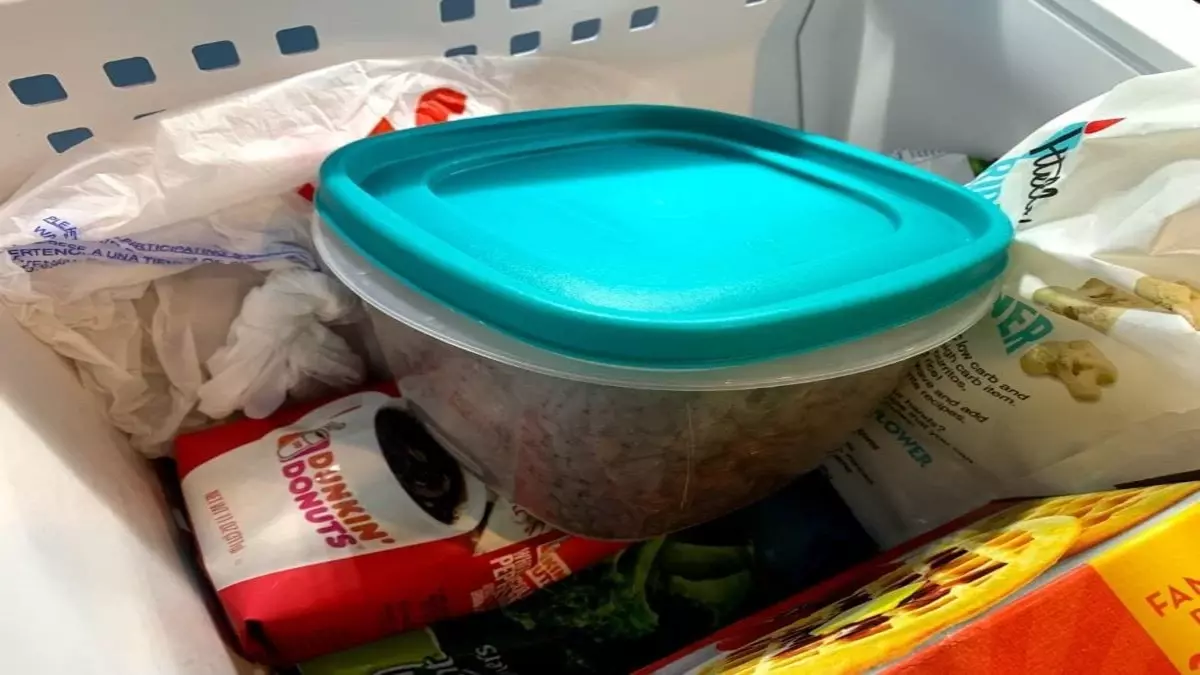Can You Freeze Tupperware Containers?

Freezing has been one of the most revolutionary inventions in food storage. After all, it can allow you to safely store your food for up to a year. That’s why people are always looking for containers that they can safely use in their freezers. So it makes sense to wonder if you can safely freeze Tupperware containers.
Fortunately, that’s what we’re going to talk about today.
Can you freeze Tupperware containers (plastic)?
Yes, you can safely freeze Tupperware containers made from plastic. If in doubt, just check the bottom of the container for a snowflake symbol – this indicates that it’s freezer-safe.
Can you put Ziploc bags in the freezer?
Yes, you can put Ziploc bags in the freezer.
Can you freeze Tupperware containers (glass)?
Yes, you can freeze glass Tupperware containers. They are even better than plastic Tupperware containers. This is because they don’t absorb any foods and beverages. This also means that they don’t transfer odors from one food to another.
How long can you keep food frozen in Tupperware containers?
Depending on the type of food you are freezing, you can keep it frozen for up to 12 months. Fresh meat particularly lasts long frozen in a Tupperware container, averaging 6 to 12 months.
On the other hand, you can keep vegetables frozen in Tupperware containers for up to 3 months. Leftovers can last two to three months when frozen in Tupperware.
Will Tupperware prevent freezer burn?
Most high-quality Tupperware containers prevent freezer burns. This is because they come with lids that lock out air. This protects your food from freezer burn for longer than when you’re using freezer backs. This mechanism also keeps your food from getting affected by odors.
Do Tupperware containers leach in the freezer?
Since Tupperware containers manufactured from the year 2010 don’t contain BPA or any other toxic chemical, they don’t leach in the freezer.
How do you keep Tupperware from freezer burn?
To further prevent freezer burn, you can:
1. Ensure you set the freezer to the right temperature
Always ensure that your freezer’s temperature is at the freezing point or below. Depending on the model of the freezer that you have, this can be an actual temperature setting or labeled as cold or low.
2. Refrigerate your food before freezing it
Placing hot food in your freezer will raise the temperatures inside it. This will warm up other foods in the freezer and can make them lose moisture, putting them at risk for freezer burns.
That’s why it’s always a good idea to cool your food before you freeze Tupperware containers. You can do this by placing it in the refrigerator for one to two hours before moving it to the freezer.
3. Provide extra protection
To further keep air away from your food and prevent freezer burns, wrap your food before you freeze Tupperware containers. You can use plastic wrap, wax paper, or aluminum foil for this.
4. Don’t open the freezer unnecessarily
The more often you open your freezer, the more warm air gets inside it and compromises its airflow. This can make the frozen food dry out and get discolored.
5. Regularly clear out your freezer
The longer you keep food frozen in your freezer, the more likely it is to get freeze burns. As such, it’s important to keep track of what you have in the freezer and the duration it has spent there. Anything that has been in there for more than 9 months should be removed,
Final thoughts
Ultimately, Tupperware containers are great for freezing, no matter what material they are made of.
